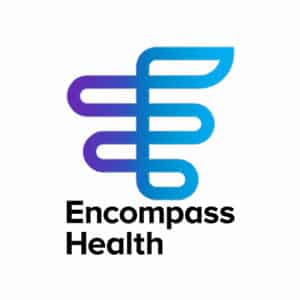Clinical Advisory Board Testimonials
Board Members share their success stories using Interactive Metronome®!
Occupational Therapists
“The Interactive Metronome is the one tool we can count on to consistently help our clients move forward in a measurable way and it’s flexible, allowing us to remotely train clients, which is very convenient.
I highly recommend Interactive Metronome and encourage all clinicians to learn about its many benefits.”
April Christopherson
OTR/L, Founder of Exploration Kids Therapy

“I have been using Interactive Metronome every day in my practice since 2003. It helped us to establish our practice and even helped me as a personal therapy tool. It has been a great honor to be able to use Interactive Metronome and witness the results we get with it and it’s been helpful in growing our practice and we are excited about implementing IM-360’s remote training capabilities for our clients”
Dillen Hartley
OT, Co-owner of Advanced Therapy Solutions

“I completed [my IM certification training] over lunch breaks. Over a three week period. And that’s what struck me the most about IM, was that within a three week period there could affect so much change in functional performance. It wasn’t typical, it wasn’t what I was used to seeing. You know, traditionally, we expect improvement, but not in such a short timeframe. So over the years, that’s really struck me, as well with the kids and the adults that I’ve worked with. Really seeing improvements in shorter timeframes and of course, everyone’s different, but the end results have been the same, where we see improved functional performance and moving on to greater things and embracing life’s challenges. So to me, that’s been the greatest advantage of bringing Interactive Metronome into my clinical practice.“
Mary Jones
OTR/L, IM & Pediatric Best Practices Instructor
Bradenton, FL
“Recently I was working with an adult patient who had a stroke, it was affecting his right dominant hand. He had a lot of difficulties just opening and closing his hands to pick up a glass or to hold his toothbrush. We went through several weeks of the Interactive Metronome and it improved his coordination and reaction speed enough to the point that he could bounce and catch a ping pong ball.”
Jonathan McKee, OTR/L BS in OT BS in Bus Mgt
Life Cycle Therapy, Dacula, GA
Speech-Language Pathologists
“As a Speech-Language Pathologist, I have seen firsthand over the course of a decade what can be achieved with Interactive Metronome. I loved the product so much, I decided to join the company to help other clinicians implement it in their practice so they could achieve even better outcomes with their patients. I really enjoy helping and supporting our clinicians to customize and individualize training for their clients so that they can get the most out of Interactive Metronome.”
Amy Vega
MS, CCC-SLP
Clinical Education Director at Interactive Metronome
“Having Interactive Metronome in my bag of tricks has really helped me to be able to utilize a multitasking environment where my patients are forced to use both cognition and motor skills at the same time. After doing some research and after using IM with some of my patients, I quickly found out that using IM is really a way to maximize and accelerate the outcomes my patients were having.”
Dara Coburn, MS, CCC-SLP
Novant Health Rehabilitation Hospital, Winston Salem, NC

“I’ve seen the effectiveness of Interactive Metronome in a clinical environment for over 20 years. As a Speech-Language Pathologist, the focus of my private practice is treating ADHD in both pediatrics and adults. What I love about Interactive Metronome is that it delivers dependable, objective, and statistically measurable improvements for my clients. As a result of therapy clients become more engaged conversationally, there are shorter verbal delays, vocal prosody is normalized and patients get better at their jobs and are more engaged with their families and friends. I highly recommend any clinician give Interactive Metronome a try because it has done so many amazing things for so many patients.”
Loraine Jones,
Ph.D. M.A. CCC-SLP
” I was looking for therapies that were a little bit innovative, out of the box, so to speak, and this came across my desk one day. I realized that it was backed by Dr. Stanley Greenspan and I said let’s give it a shot and see what we can see as far as outcomes. My son, at the time, had significant auditory processing issues, he was nine years old, expressive language deficits, receptive language deficits, social deficits, and just had a lot of problems academically. I knew he was above average intelligence, I just didn’t know how to get in there and unlock the door and Interactive Metronome did that for us. It really I still to this day say that it changed his life. Anyway, I used this program for hundreds and hundreds of children over the years. So, I can’t say enough wonderful things about it.”
Dr. Lorraine Sgarlato
Au.D. CCCA
RWJ Barnabas Health, Hamilton, NJ

Physical Therapists
“I love the IM as a therapeutic tool in Pediatric Physical Therapy Practice. I have had children who can barely walk and catch a ball separately, but when using the Gait Mate with IM are able to bounce and catch a ball while they are walking. I have used IM to slow down kids who move too fast and speed up kids whose legs don’t keep pace with their body. It’s flexibility in treatment is limited only by the Therapists’ creativity!”
Todd J. Sullivan, PT, PCS
Blake Medical Center, Bradenton, FL

“I will add IM to my normal activities I would do with a patient. So in the clinic if we’re working on balance, I’ll add IM, if we’re working on strength I’ll add IM, I can continually increase the challenge by adding in the speed, adding alternating movements, or adding cognitive activities to the session. This helps to keep the patient engaged and motivated. Once they began using IM they’re quickly motivated and excited to use it and they can see that it helps to support improved outcomes.”
Allison Eagen, PT
Encompass Health Rehabilitation Hospital, Tallahassee, FL

Researchers
“IM research has demonstrated positive treatment effects across a variety of human performance domains and in a number of different clinical disorders. The diversity of domains positively impacted suggests that IM is impacting a domain-general brain-based neurocognitive mechanism or sets of mechanisms.”
Dr. Kevin McGrew
Neurologist Director,
Institute for Applied Psychometrics (IAP)

Curious? Got Questions?
We have IM consultants standing by to answer your questions.
IM Works.
Find Out How It Can Impact Your Practice
With IM you can easily scale & grow your practice, all while achieving better patient outcomes!














